MSI Pro DP20Z 5M review: Small, fast and affordable
This machine offers a lot of power in a small box, although connectivity could be better
-
+
Impressive AMD processor
-
+
Accessible, compact case
-
+
Consistently good value
-
-
Rivals are smaller

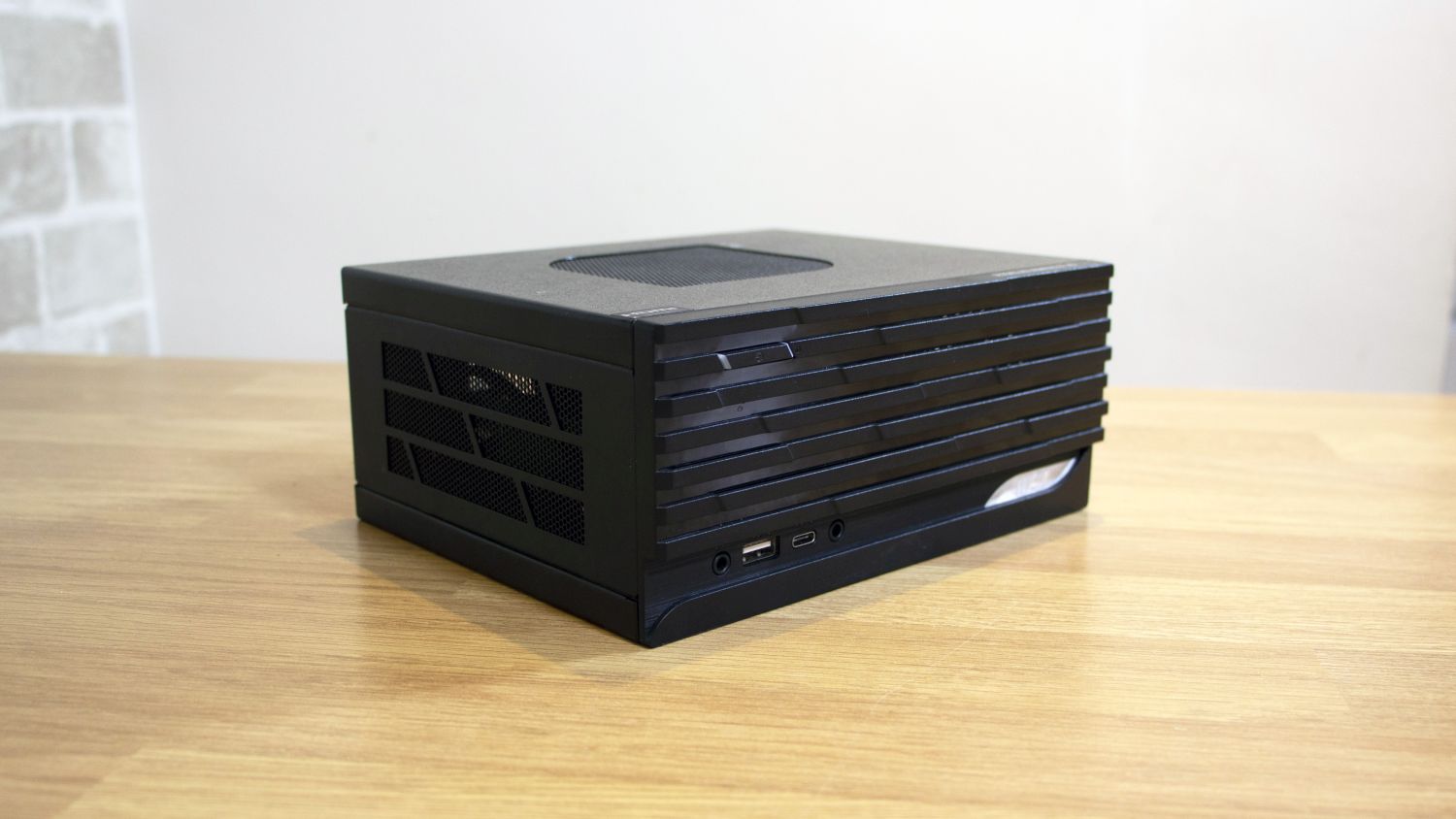
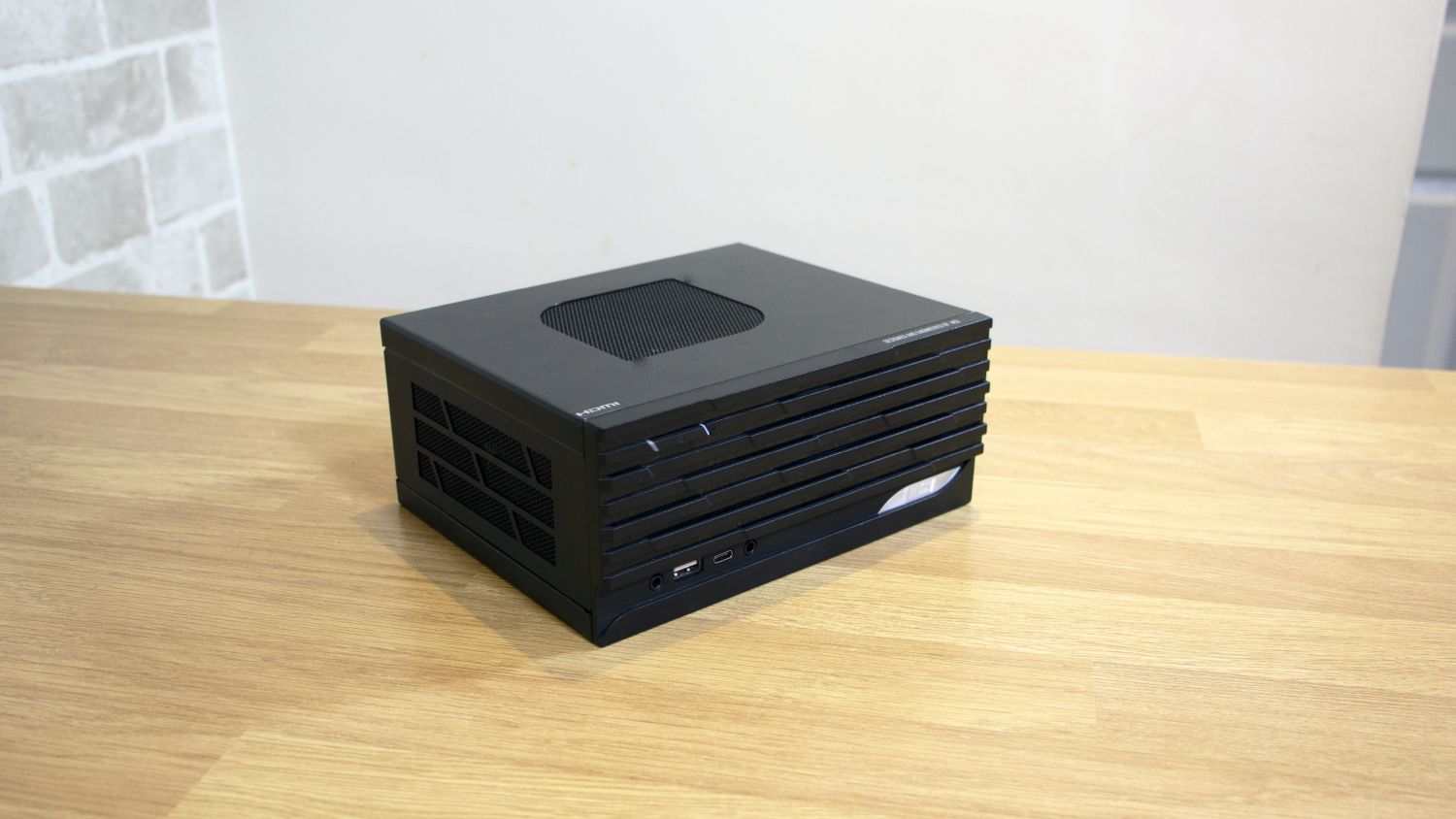
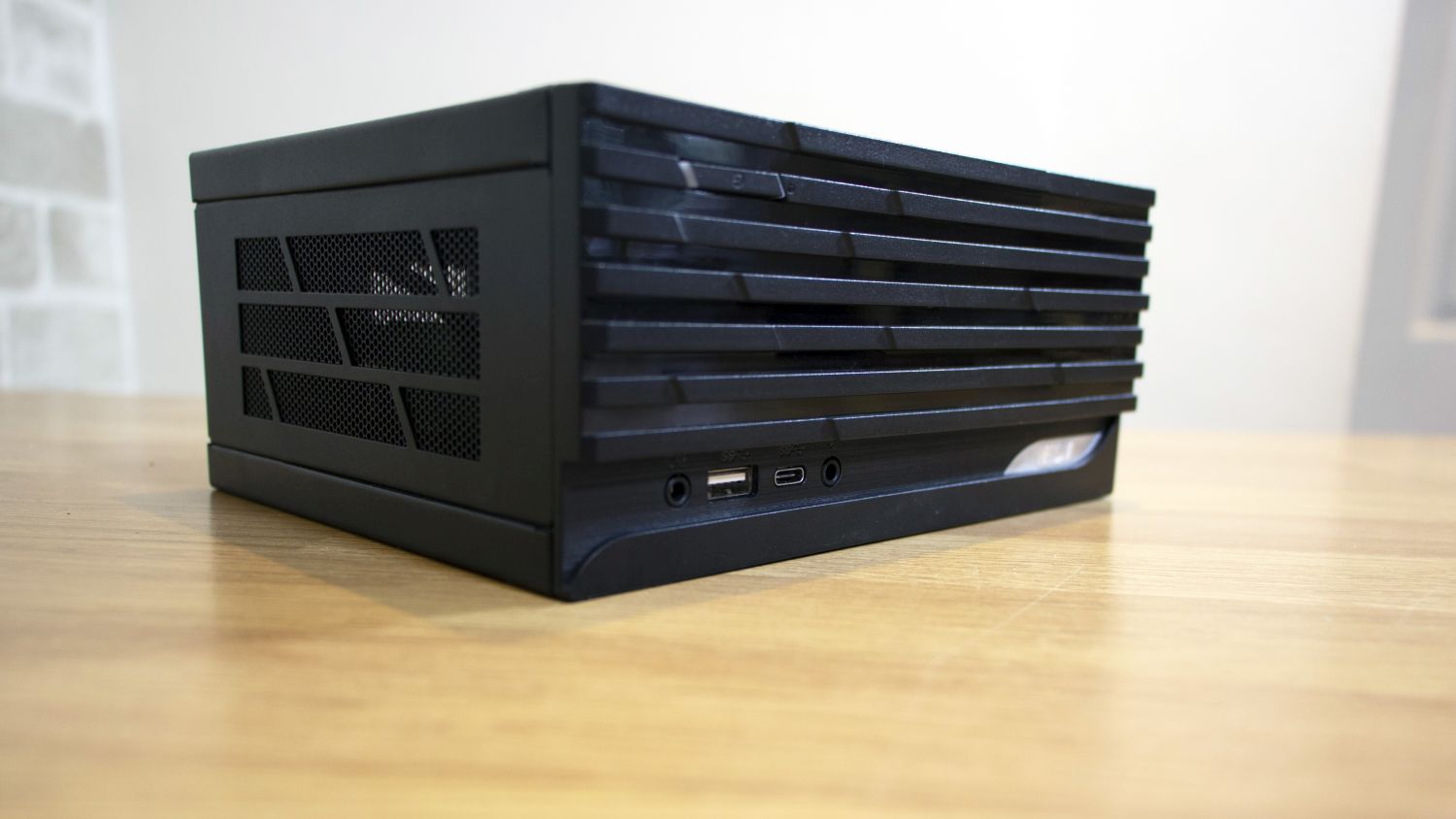
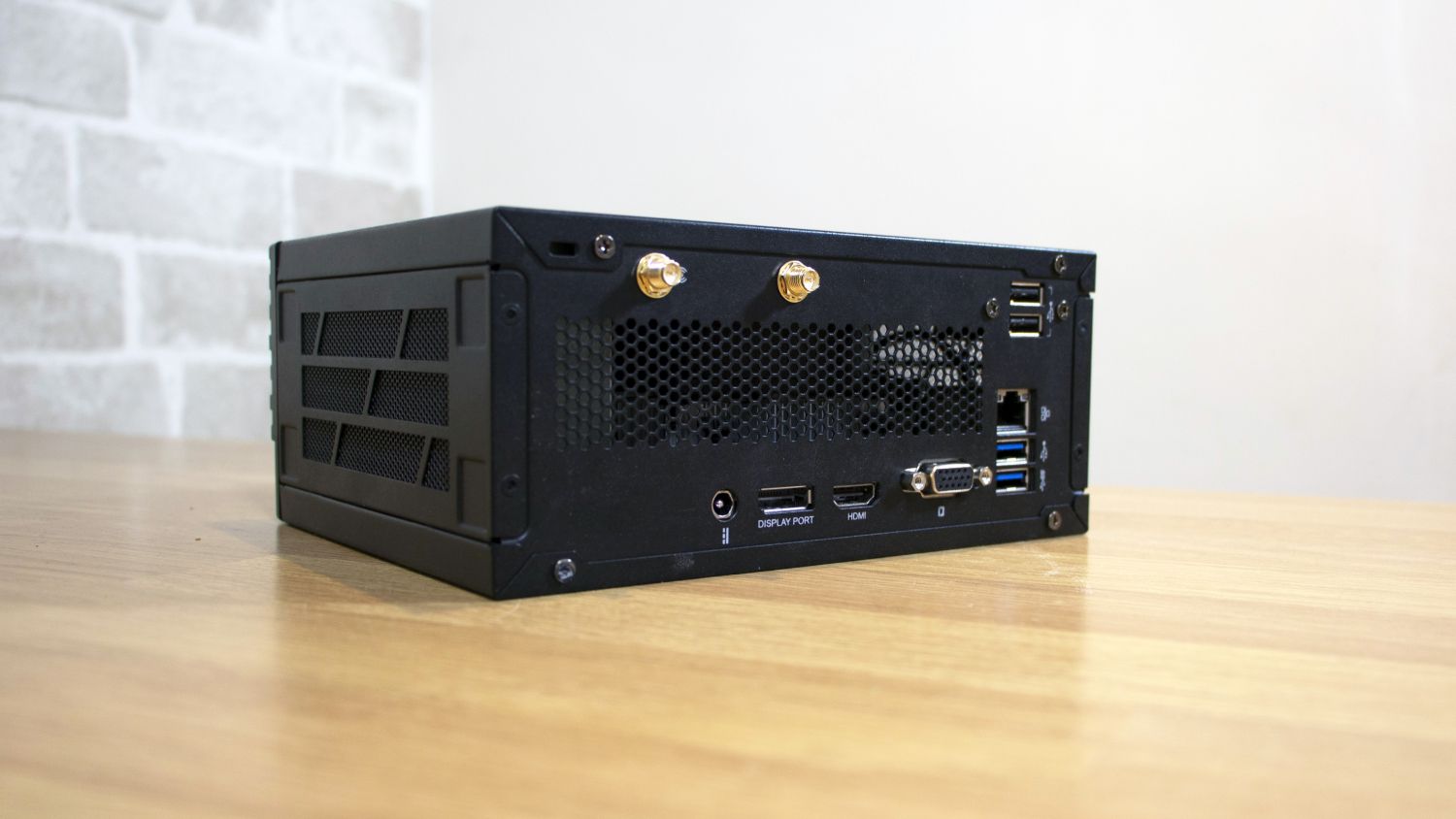
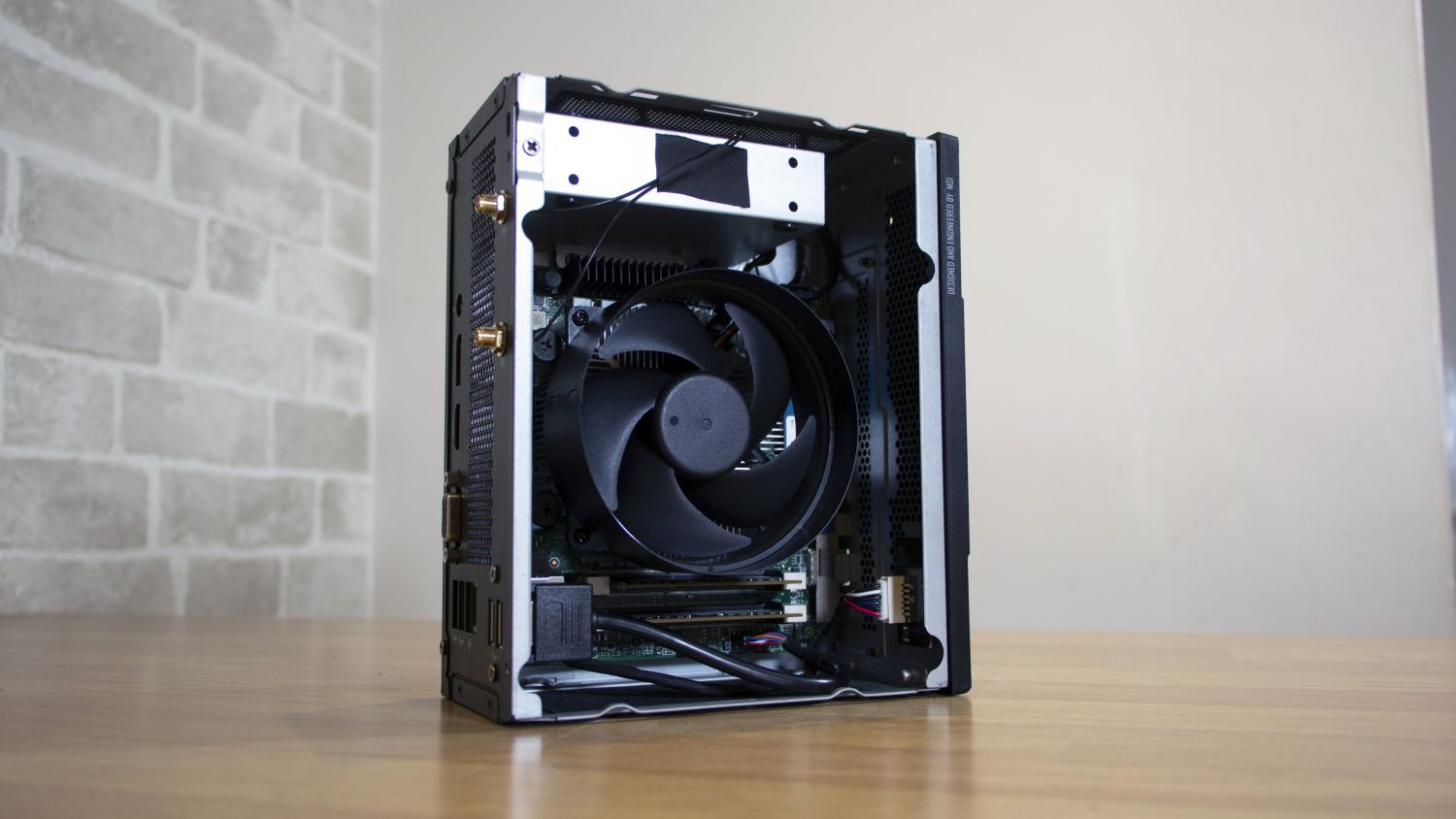
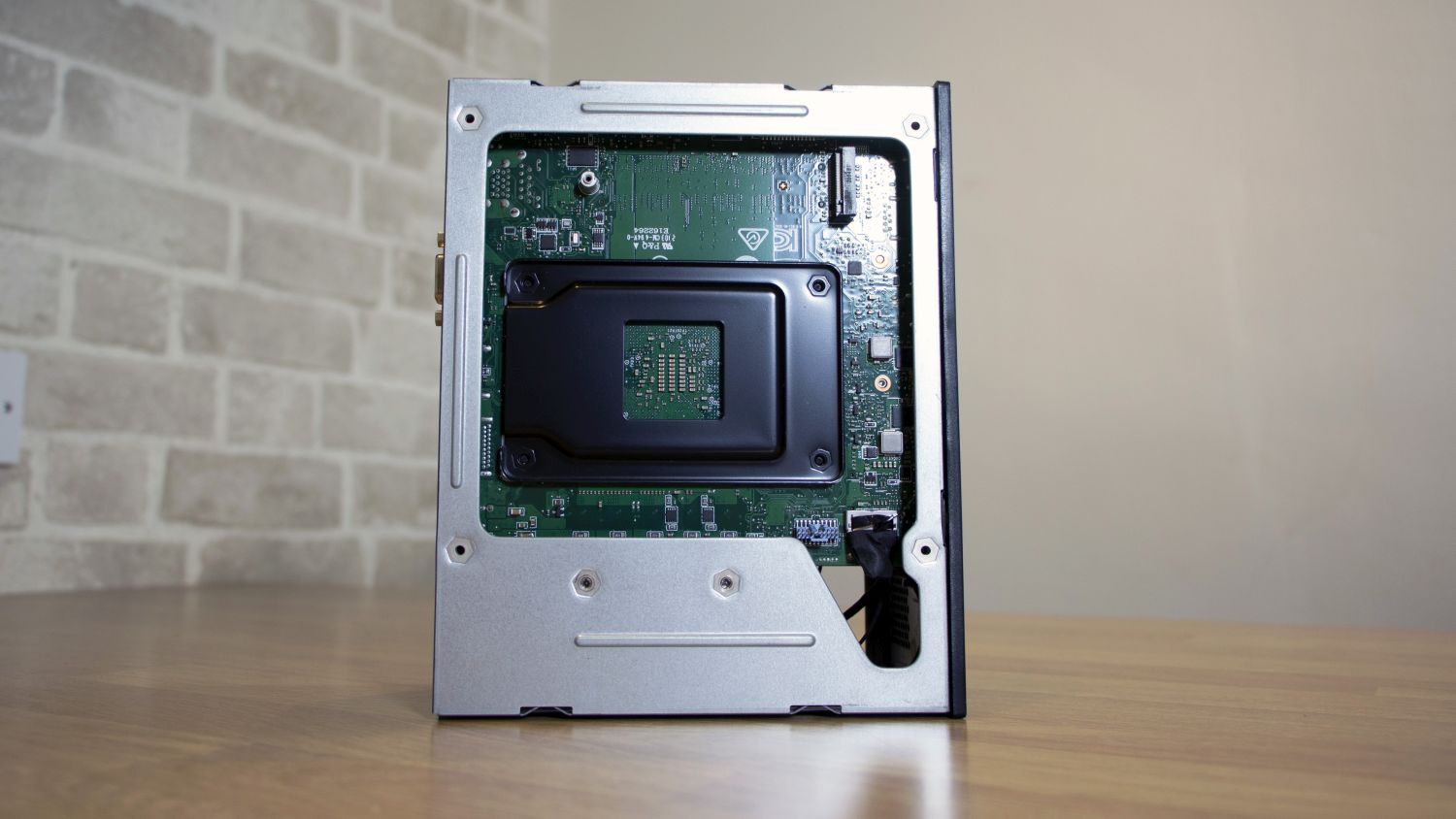
Small form factor PCs make sense for businesses thanks to the combination of good performance and tiny enclosures, and the MSI Pro DP20Z 5M is a versatile new contender.
MSI’s latest machine is powered by impressive AMD Ryzen silicon, and it has plenty of ports and some good features. There’s plenty of wiggle room on the pricing front, too: it’s sold as a barebones system with two different processors, but it’s also available as a fully-built system in three configurations, so you’re able to use your own components or pick a specification that matches your workload.
The mid-range barebones model we’ve reviewed costs £299 exc VAT, which means it undercuts rivals. It’s also available as a £432 exc VAT full system with 8GB of single-channel memory, a 256GB SSD and Windows 10 Home.
MSI Pro DP20Z 5M review: Design
The MSI’s concentration on versatility continues to its enclosure – a boon if you’ve bought the barebones version of this device and need to fit your own hardware. The base and roof panels are secured with a couple of screws, so they’re easy to remove, and the internal layout is straightforward.
Beneath the roof you’ll find a basic processor cooler, two SO-DIMM memory slots and the motherboard’s first M.2 SSD connector, so users won’t have to detach the CPU cooler to install memory and storage. There’s a second M.2 port underneath the base, and a cage beside the motherboard holds pairs of 2.5in hard disks or SSDs. The MSI’s build quality is mediocre – it should withstand office life, but its metal panels and plastic façade could be stronger.

MSI’s rig weighs 1.52kg, so it’s reasonably light, and it’s 193mm wide, 161mm deep and just 85mm tall – so it’s not large when compared to conventional office desktops. That makes it easy to slot this machine into any tiny office space. It’s also compatible with 75mm VESA mounts, and adapters to convert to the more common 100mm format are easy to find.
Bear in mind, though, that competitors are even more compact. The Asus PN51 has two memory slots and sole M.2 and SATA ports and it’s smaller and lighter than the MSI. The Intel NUC 11 Pro crams three M.2 slots and two memory sockets inside an even more compact case. Even MSI’s own Pro DP21 11M is lighter and shorter.
MSI Pro DP20Z 5M review: Hardware and performance
Inside the MSI’s accessible chassis you’ll find an AMD Ryzen 5 5600G. It’s an impressive desktop APU, with six multi-threaded cores that use AMD’s excellent Zen 3 architecture. The chip has single- and multi-core peaks of 4.4GHz and 4.1GHz, and it uses an integrated Radeon graphics chip with 448 processing cores.
Our £299 exc VAT barebones machine has been tested with 16GB of dual-channel 3200MHz memory and a WD SN530 1TB SSD with mid-range read and write speeds of 2,441MB/sec and 1,996MB/sec – typical of the hardware that businesses will install in this machine.
The AMD chip helped the MSI deliver a superb benchmark result of 243. That’s miles ahead of the low-power laptop chips that Intel uses in NUCs. It’s also far better than the Intel Core i5-11400 inside MSI’s own DP21 11M, which only scored 158 in our benchmarks, and it crept ahead of the Ryzen 7 5700U used inside the Asus PN51.

The MSI’s integrated graphics core helped the rig deliver a 3D Mark Fire Strike score of 3,234. That’s decent and will help this machine tackle mainstream graphical workloads, and it’s better than Intel’s integrated GPUs. It handles low-end gameplay, too, which is ideal if you want to tackle some esports titles after work.
These benchmarks bode well for a wide variety of work situations. This machine will tackle any Office application, mainstream photo-editing apps and even some 1080p video-editing, and it won’t have any issue with multi-tasking. Indeed, it’s far better than any Intel rival in multi-threaded and creative tasks. The AMD chip never had thermal issues, either: the fan noise was barely noticeable even during tough tasks, and the processor didn’t show any throttling or temperature problems.
The only way you’ll get better performance with the DP20Z is by investing in the AMD Ryzen 7 5700G model, which delivers two extra cores and marginally better speeds. It’s not available as a barebones rig, though, so you’ll have to buy the full system for £582 exc VAT – but it’s hamstrung by 8GB of single-channel memory, and that will hinder speeds.
That £582 exc VAT could also buy you an entry-level Mac Mini, though. Its Apple M1 chip offers similar speeds to the 5700G with a smaller, more stylish case – that’s a tempting option, especially if you like macOS.
We still think the Ryzen 5 5600G barebones model is the sweet spot for this range. It’s faster and cheaper than the rival barebones system than Asus and the Intel NUC and it’s far quicker than MSI’s own Pro DP21 11M.
The DP20Z isn’t expensive to kit out, either: 16GB of dual-channel memory, a mid-range 256GB SSD and a copy of Windows will cost less than £200 exc VAT. That setup is a better option than the pre-built MSI: its £432 exc VAT price might undercut the barebones model once you’ve bought components, but its single-channel memory is slow. And, if you’ve got parts lying around, that’s an even better route to a cheap build.

The Ryzen 3 5300G barebones is good for low-end work tasks, too: it only costs £232 exc VAT, while the equivalent Asus costs £291 exc VAT.
MSI Pro DP20Z 5M review: Ports and features
The Ryzen 5 5600G is undoubtedly impressive, but the MSI’s features are underwhelming. The machine’s front edge has a USB 3.2 Gen 1 port, a USB 3.2 Gen 2 Type-C connector and two audio jacks. At the rear there are pairs of USB 3.2 Gen 2 and USB 2.0 sockets, and HDMI, DisplayPort and D-SUB outputs for triple-screen setups.
That’s reasonable everyday connectivity, and on the inside you’ll find dual-band Wi-Fi 6, Bluetooth 5.2 and Gigabit Ethernet. The Ryzen 3 versions of this machine, meanwhile, only have 802.11ac dual-band wireless. Security is handled by TPM 2.0, and the MSI supports 64GB of DDR4 memory at 3200MHz.
Those are fine features for everyday business computing, but there’s no denying that the MSI is missing some capability too. MSI’s machine doesn’t have super-fast USB ability and it has no Kensington lock slot, and the absence of PCI-E 4 means you can’t use the faster SSDs in this PC.
The Asus matches the MSI for memory and storage ability and it has better USB-C connectivity, a card reader, and an infrared sensor. It can also drive four displays simultaneously. The Intel NUC has Thunderbolt 4 ports for added speed, and both rivals have 2.5Gbps Ethernet. The MSI Pro DP21 11M has eight USB connections, but no Type-C connectivity.

MSI Pro DP20Z 5M review: Verdict
The MSI Pro DP20Z 5M isn’t the best when it comes to connectivity – it’s got the physical and wireless features to handle everyday workloads, but rivals offer faster networking and more ports. Competitors are smaller and lighter, too.
Look beyond this, though, and there’s plenty to like. Its AMD APU is one of the fastest chips you’ll find in any tiny PC, and in most of its barebones and fully-specified configurations it offers better value than the competition.
The lower price does mean you lose features and compact design, but the MSI Pro DP20Z 5M offers impressive power and versatility and it’s still very small. If you want compact speed on a budget, this is a good choice.
MSI Pro DP20Z 5M Specifications
| Processor | 3.9GHz AMD Ryzen 5 5600G |
| RAM | 2 x SO-DIMM DDR4 up to 3200MHz/64GB |
| Graphics | AMD Radeon graphics |
| Storage | 2 x PCI-E 3 M.2, 2 x 2.5in |
| Operating system | n/a |
| Connectivity | Dual-band 802.11ax WiFi, Bluetooth 5.2, Gigabit Ethernet |
| Ports | 1 x USB 3.2 Gen 2 Type-C, 2 x USB 3.2 Gen 2, 3 x USB 3.2 Gen 1, 1 x HDMI, 1 x DisplayPort, 1 x D-SUB, 2 x audio |
| Dimensions | 193 x 161 x 85mm (WxDxH) |
| Weight | 1.52kg |
| Warranty | 1yr RTB |
Get the ITPro daily newsletter
Sign up today and you will receive a free copy of our Future Focus 2025 report - the leading guidance on AI, cybersecurity and other IT challenges as per 700+ senior executives
Mike Jennings has worked as a technology journalist for more than a decade and has been fascinated by computers since childhood, when he spent far too long building terrible websites. He loves desktop PCs, components, laptops and anything to do with the latest hardware.
Mike worked as a staff writer at PC Pro magazine in London for seven years, and during that time wrote for a variety of other tech titles, including Custom PC, Micro Mart and Computer Shopper. Since 2013, he’s been a freelance tech writer, and writes regularly for titles like Wired, TechRadar, Stuff, TechSpot, IT Pro, TrustedReviews and TechAdvisor. He still loves tech and covers everything from the latest business hardware and software to high-end gaming gear, and you’ll find him on plenty of sites writing reviews, features and guides on a vast range of topics.
You can email Mike at mike@mike-jennings.net, or find him on Twitter at @mikejjennings
-
 ‘Phishing kits are a force multiplier': Cheap cyber crime kits can be bought on the dark web for less than $25 – and experts warn it’s lowering the barrier of entry for amateur hackers
‘Phishing kits are a force multiplier': Cheap cyber crime kits can be bought on the dark web for less than $25 – and experts warn it’s lowering the barrier of entry for amateur hackersNews Research from NordVPN shows phishing kits are now widely available on the dark web and via messaging apps like Telegram, and are often selling for less than $25.
By Emma Woollacott Published
-
 Redis unveils new tools for developers working on AI applications
Redis unveils new tools for developers working on AI applicationsNews Redis has announced new tools aimed at making it easier for AI developers to build applications and optimize large language model (LLM) outputs.
By Ross Kelly Published
-
 Google layoffs continue with "hundreds" cut from Chrome, Android, and Pixel teams
Google layoffs continue with "hundreds" cut from Chrome, Android, and Pixel teamsNews The tech giant's efficiency drive enters a third year with devices teams the latest target
By Bobby Hellard Published